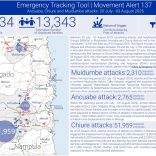Mozambique: Authorities warn of 'large-scale' flooding risk in next rainy season
Mozambique: Private security guards unable to stand up to kidnappers – O País report

Photo: O País
Private security workers admit they are unprepared to counter attempted abductions, adding that their weapons sometimes do not even work. The companies concerned, however, deny some of these problems exist.
Security camera footage depicting a kidnapping in central Maputo in February of this year shows the kidnappers entering an establishment disguised as customers and snatching their victim.
The establishment had a security guard, but he only appears at the end of the incident, apparently scared and fleeing. He later acknowledged to STV that he had no ability to respond. “It all seemed to be arranged. Everyone had weapons, and I didn’t know what to do,” he said.
What, then, are the security guards we see everywhere every day, seemingly protecting houses, establishments and institutions, both public and private, actually do?
We put the question to the Union of Workers of Security Companies. The Union acknowledged the complexity of the situation. “Customers often fall into error; I would venture to say that, in some companies, those weapons don’t work,” union secretary Boaventura Sibinde said.
Sibinde goes further, revealing that security companies lack quality. Compounding the problem is the fact that many security guards are unarmed, and that “even with a weapon, the security guard is useless”.
Even more serious is that the security guards responsible for protecting establishments themselves recognise that they are ill-prepared to respond to kidnappings.
“If we look at it, many security guards have no training; security companies recruit people without following legal procedures,” he said.
Security workers told our reporter that they put up with minimal working conditions. “For example, shooters don’t have a contract, let alone life insurance. What motivation is there to work?” one security guard asked.
How can security guards react in face of this incapacity?
“I have to alert my company’s intervention unit to come to the place, and if they don’t arrive in time, I have to surrender,” one security guard explained.
Companies in the private security sector association say that most of the weaknesses outlined are found in firms not affiliated to the Associação das Empresas Privadas de Segurança,
According to decree 9/2007 of 30 April, the Ministry of the Interior has the obligation to create a professional training centre for security guards.
“Several security companies have emerged recently which do not comply with the procedures,” said the representative of the Association of Private Security Companies, Odair Bila.
Bila said that he was not aware of the existence of security companies whose workers had weapons that did not work.













Leave a Reply
Be the First to Comment!
You must be logged in to post a comment.
You must be logged in to post a comment.